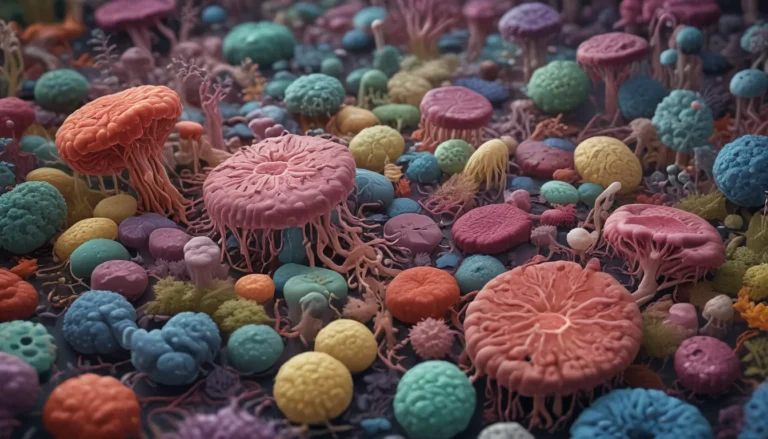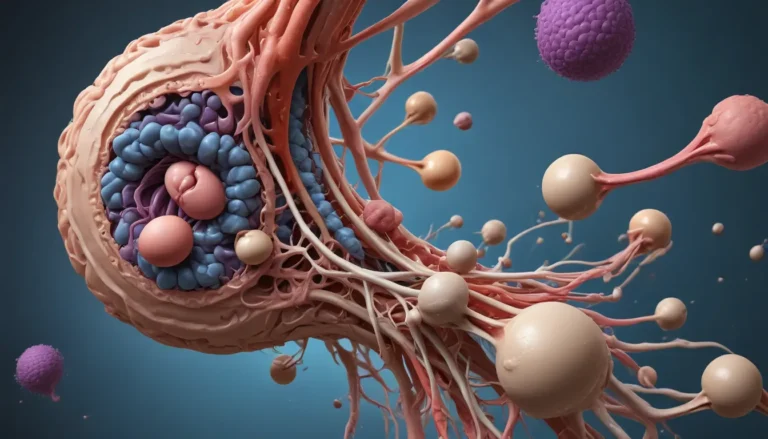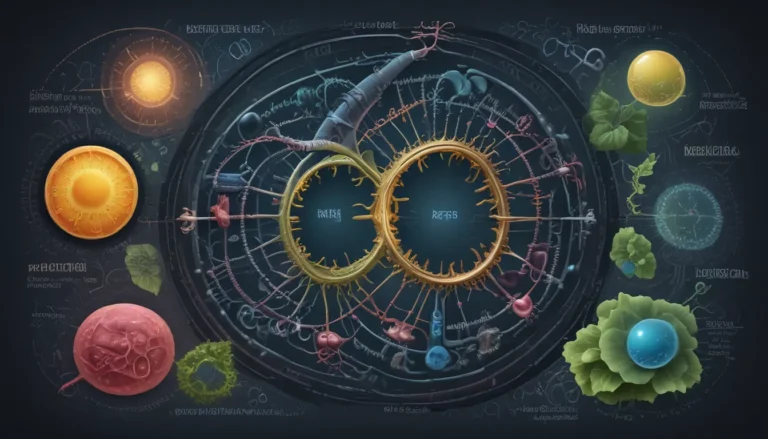A Note About Images: The images used in our articles are for illustration purposes only and may not exactly match the content. They are meant to engage readers, but the text should be relied upon for accurate information.
Neurodegenerative diseases are a group of disorders that impact the neurons in the brain and spinal cord, leading to a progressive decline in function. These conditions, such as Alzheimer’s, Parkinson’s, and Huntington’s diseases, have a significant global presence and affect millions of individuals and their families. While the exact causes of these diseases remain not fully understood, researchers continue to make remarkable discoveries that shed light on their complexity. In this comprehensive article, we will delve into 11 surprising facts about neurodegenerative diseases, revealing the challenges they pose and the inspiring efforts to find effective treatments and preventative measures.
Neurodegenerative Diseases: A Global Concern
Neurodegenerative diseases, including Alzheimer’s, Parkinson’s, and Huntington’s, are characterized by the gradual degeneration of nerve cells in the brain. These diseases collectively impact millions of people worldwide, resulting in a range of debilitating symptoms and greatly affecting the quality of life for patients and their loved ones.
The Pursuit of a Cure
Despite extensive research efforts, there is currently no known cure for neurodegenerative diseases. Treatment primarily focuses on managing symptoms and slowing down disease progression. Researchers are actively exploring new therapeutic approaches and potential breakthroughs, but the quest for a cure remains a significant challenge.
Unraveling the Causes
Neurodegenerative diseases can stem from various factors, including genetic predisposition, environmental influences, and age-related changes. Some conditions, such as Huntington’s disease, are directly linked to inherited genetic mutations, while others like Parkinson’s may be a result of a combination of genetics and environmental triggers. Understanding the root causes is pivotal in developing effective treatments.
Diverse Presentations of Disease
While neurodegenerative diseases share common characteristics, they can present in varied ways. For instance, Alzheimer’s disease primarily affects memory and cognitive function, while Parkinson’s disease is notable for its motor symptoms like tremors and stiffness. Each disease exhibits its unique set of symptoms and progression patterns.
Protein Aggregates and Disease Progression
Abnormal protein aggregates, such as amyloid plaques and tau tangles, are observed in many neurodegenerative diseases. These aggregates disrupt normal cellular processes and contribute to nerve cell degeneration. Investigating the mechanisms behind protein misfolding is a crucial area of focus in neurodegenerative disease research.
Hope in Rare Reversibility
Although most neurodegenerative diseases are deemed irreversible, there are rare instances where symptoms can be reversed or significantly improved. Certain metabolic disorders and vitamin deficiencies can mimic neurodegenerative disease symptoms but respond well to targeted interventions.
Affecting All Ages
While neurodegenerative diseases are commonly associated with older individuals, some forms can impact younger people as well. Early-onset conditions like Alzheimer’s disease can manifest in individuals as young as their 30s or 40s, necessitating specialized care and attention for managing the disease at a younger age.
Lifestyle Influence on Risk
Various lifestyle factors, including diet, exercise, and cognitive engagement, can influence the risk of developing neurodegenerative diseases. Regular physical activity, a nutritious diet filled with antioxidants and omega-3 fatty acids, and mental stimulation through puzzles and brain exercises can potentially reduce the risk or delay disease onset.
Holistic Impact on Health
Neurodegenerative diseases not only affect physical health but also have a profound impact on mental and emotional well-being. Patients often grapple with mood changes, depression, anxiety, and cognitive decline, all of which pose significant challenges. Comprehensive care strategies aim to address both the physical and mental aspects of these diseases.
Research Advances and Promising Interventions
Ongoing research and advancements in biomedical science offer hope for novel treatments and interventions for neurodegenerative diseases. From targeted therapies to cutting-edge gene-editing techniques, researchers are exploring innovative avenues to slow or halt disease progression and enhance patients’ quality of life.
Support and Education: Keys to Coping
Access to support networks and educational resources is vital for individuals affected by neurodegenerative diseases and their families. Organizations, caregivers, and healthcare professionals play crucial roles in providing guidance, assistance, and information to help navigate the complexities of these conditions.
Conclusion: A Journey of Discovery and Hope
Neurodegenerative diseases present complex challenges for individuals worldwide, impacting their lives in profound ways. While much remains unknown about these conditions, ongoing research strives to uncover new insights and potential treatments. By raising awareness and offering support to those affected, we can collectively work towards a future where neurodegenerative diseases are better understood and effectively managed.
FAQs: Your Questions Answered
Q: Are neurodegenerative diseases hereditary?
A: Some neurodegenerative diseases have a genetic component, but other factors like age and environment also play a role in disease development.
Q: Is there a cure for neurodegenerative diseases?
A: Currently, there is no cure for most neurodegenerative diseases, but research is ongoing to explore potential treatments and breakthroughs.
Q: Can lifestyle choices impact the risk of developing neurodegenerative diseases?
A: Yes, lifestyle factors like exercise, diet, and mental stimulation can influence the risk of neurodegenerative diseases.
Q: Is there a link between neurodegenerative diseases and mental health?
A: Neurodegenerative diseases can lead to mental health issues, emphasizing the importance of comprehensive care addressing both physical and mental well-being.
Q: Are ongoing research studies focused on neurodegenerative diseases?
A: Yes, numerous research studies worldwide seek to advance our understanding of these diseases, explore new treatments, and identify diagnostic markers.
Neurodegenerative diseases present a pressing global health concern, demanding collective efforts to enhance awareness, support research initiatives, and offer compassionate care to those affected. As we continue to unravel the complexities of these conditions, there is hope for significant strides in treatment options and improved outcomes for individuals facing neurodegenerative diseases.






